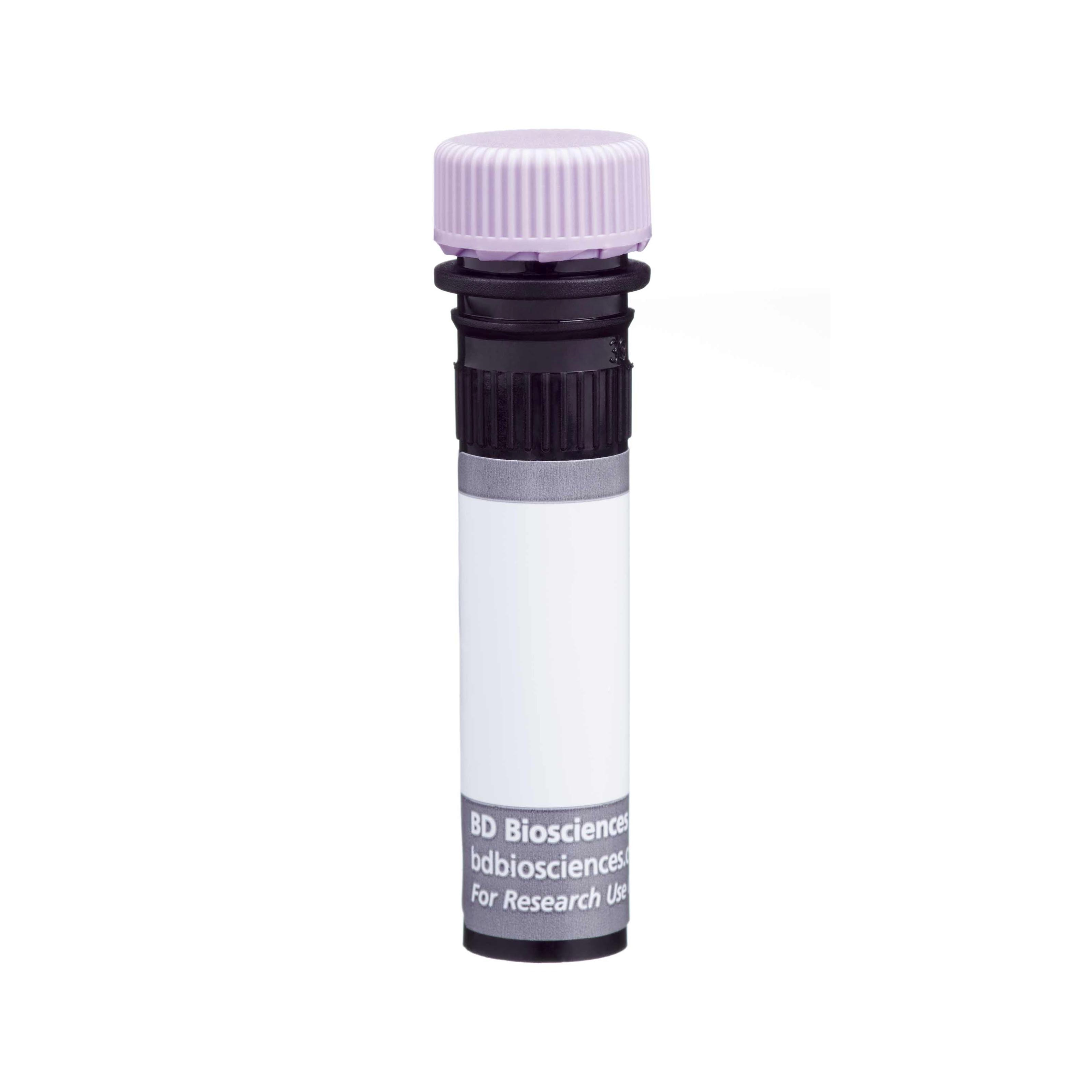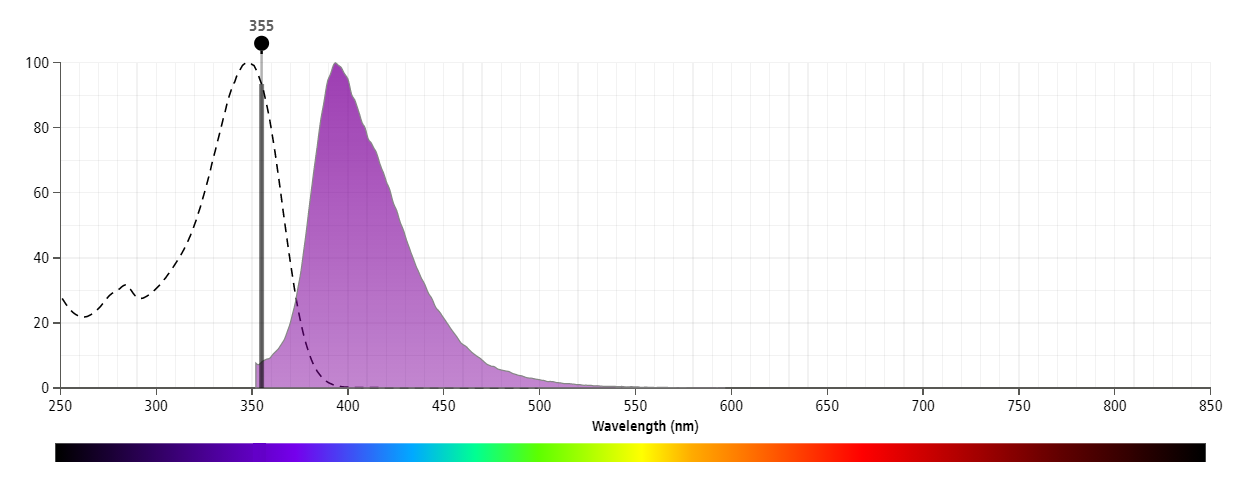-
Your selected country is
Middle East / Africa
- Change country/language
Old Browser
This page has been recently translated and is available in French now.
Looks like you're visiting us from {countryName}.
Would you like to stay on the current country site or be switched to your country?


Regulatory Status Legend
Any use of products other than the permitted use without the express written authorization of Becton, Dickinson and Company is strictly prohibited.
Preparation And Storage
Recommended Assay Procedures
For optimal and reproducible results, BD Horizon Brilliant Stain Buffer should be used anytime two or more BD Horizon Brilliant dyes (including BD OptiBuild Brilliant reagents) are used in the same experiment. Fluorescent dye interactions may cause staining artifacts which may affect data interpretation. The BD Horizon Brilliant Stain Buffer was designed to minimize these interactions. More information can be found in the Technical Data Sheet of the BD Horizon Brilliant Stain Buffer (Cat. No. 563794).
Product Notices
- This antibody was developed for use in flow cytometry.
- The production process underwent stringent testing and validation to assure that it generates a high-quality conjugate with consistent performance and specific binding activity. However, verification testing has not been performed on all conjugate lots.
- Researchers should determine the optimal concentration of this reagent for their individual applications.
- An isotype control should be used at the same concentration as the antibody of interest.
- Caution: Sodium azide yields highly toxic hydrazoic acid under acidic conditions. Dilute azide compounds in running water before discarding to avoid accumulation of potentially explosive deposits in plumbing.
- For fluorochrome spectra and suitable instrument settings, please refer to our Multicolor Flow Cytometry web page at www.bdbiosciences.com/colors.
- Please refer to www.bdbiosciences.com/us/s/resources for technical protocols.
- BD Horizon Brilliant Stain Buffer is covered by one or more of the following US patents: 8,110,673; 8,158,444; 8,575,303; 8,354,239.
- BD Horizon Brilliant Ultraviolet 395 is covered by one or more of the following US patents: 8,158,444; 8,575,303; 8,354,239.
Companion Products






The MD22 monoclonal antibody specifically recognizes CD64 which is also known as Fc-gamma receptor I (FcgR1) or FcγRI. CD64 is a ~72 kDa type I transmembrane glycoprotein that is encoded by FCGR1A (Fc fragment of IgG receptor Ia). CD64 functions as a high affinity receptor for human IgG. The CD64 antigen is expressed on monocytes, macrophages, at low levels on polymorphonuclear neutrophils (PMNs), and on a subpopulation of circulating dendritic cells. The CD64 antigen is an early granulomonocytic lineage marker on CD34+ hematopoietic progenitors. Expression of the CD64 antigen increases transiently in cases of sepsis. The CD64 antigen functions in both innate and adaptive immune responses, and mediates endocytosis, phagocytosis, antigen presentation, antibody-dependent cellular cytotoxicity, cytokine release, and superoxide generation. The CD64 antigen associates with the signal-transducing γ-chain homodimer of Fc receptors to form the functional high affinity FcγRI complex. Ligation of the CD64 antigen leads to the activation of the protein tyrosine kinases, hck and lyn.
The antibody was conjugated to BD Horizon™ BUV395 which is part of the BD Horizon Brilliant™ Ultraviolet family of dyes. This dye has been exclusively developed by BD Biosciences to have minimal spillover into other detectors, making it an optimal choice for multicolor flow cytometry. With an Ex Max at 348 nm and an Em Max at 395 nm, BD Horizon BUV395 can be excited with a 355 nm laser and detected with a 379/28 filter.

Development References (10)
-
Ernst LK, Duchemin AM, Anderson CL. Association of the high-affinity receptor for IgG (Fc gamma RI) with the gamma subunit of the IgE receptor.. Proc Natl Acad Sci USA. 1993; 90(13):6023-7. (Biology). View Reference
-
Fanger NA, Wardwell K, Shen L, Tedder TF, Guyre PM. Type I (CD64) and type II (CD32) Fc gamma receptor-mediated phagocytosis by human blood dendritic cells.. J Immunol. 1996; 157(2):541-8. (Biology). View Reference
-
Fischer G, Schneider EM, L Moldawer LL, et al. CD64 surface expression on neutrophils is transiently upregulated in patients with septic shock.. Intensive Care Med. 2001; 27(12):1848-52. (Biology). View Reference
-
Olweus J, Terstappen LW, Thompson PA, Lund-Johansen F. Expression and function of receptors for stem cell factor and erythropoietin during lineage commitment of human hematopoietic progenitor cells. Blood. 1996; 88:1594-1607. (Biology). View Reference
-
Qureshi SS, Lewis SM, Gant VA, Treacher D, Davis BH, Brown KA. Increased distribution and expression of CD64 on blood polymorphonuclear cells from patients with the systemic inflammatory response syndrome (SIRS).. Clin Exp Immunol. 2001; 125(2):258-65. (Biology). View Reference
-
Scholl PR, Geha RS. Physical association between the high-affinity IgG receptor (Fc gamma RI) and the gamma subunit of the high-affinity IgE receptor (Fc epsilon RI gamma).. Proc Natl Acad Sci USA. 1993; 90(19):8847-50. (Biology). View Reference
-
Wang AV, Scholl PR, Geha RS. Physical and functional association of the high affinity immunoglobulin G receptor (Fc gamma RI) with the kinases Hck and Lyn.. J Exp Med. 1994; 180(3):1165-70. (Biology). View Reference
-
Zola H. Leukocyte and stromal cell molecules : the CD markers. Hoboken, N.J.: Wiley-Liss; 2007.
-
van de Winkel JG, Anderson CL. Biology of human immunoglobulin G Fc receptors.. J Leukoc Biol. 1991; 49(5):511-24. (Biology). View Reference
-
van de Winkel JG, Capel PJ. Human IgG Fc receptor heterogeneity: molecular aspects and clinical implications.. Immunol Today. 1993; 14(5):215-21. (Biology). View Reference
Please refer to Support Documents for Quality Certificates
Global - Refer to manufacturer's instructions for use and related User Manuals and Technical data sheets before using this products as described
Comparisons, where applicable, are made against older BD Technology, manual methods or are general performance claims. Comparisons are not made against non-BD technologies, unless otherwise noted.
For Research Use Only. Not for use in diagnostic or therapeutic procedures.
Report a Site Issue
This form is intended to help us improve our website experience. For other support, please visit our Contact Us page.